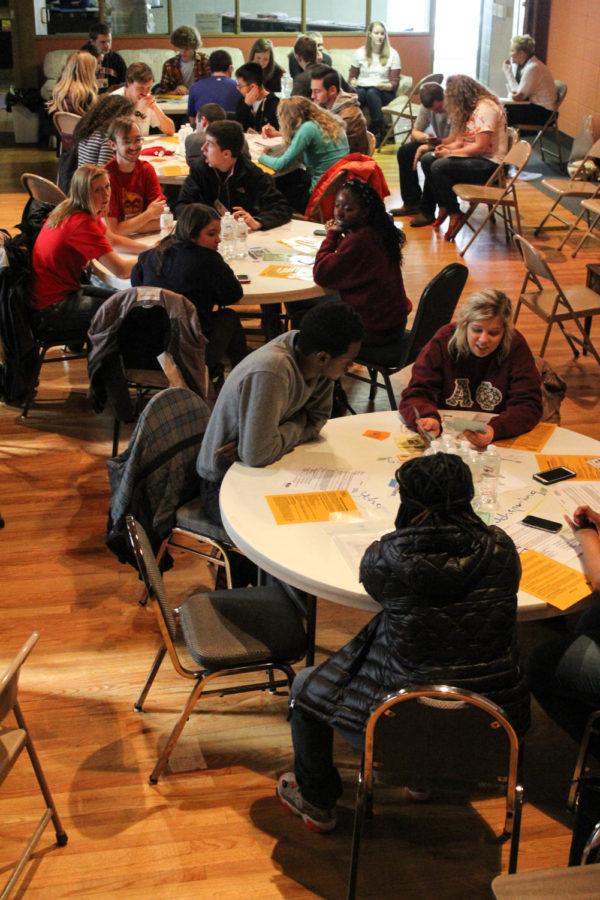Poverty Simulation
January 20, 2015
When was the last time you had to choose between eating a meal or going without a home?
The Volunteer Center of Story County hoped to show what living in poverty looks like in Story County by hosting a poverty simulation event at Collegiate United Methodist Church as a way to honor Martian Luther King Jr.
The event was composed of about 55 people who were all assigned a ‘family’ and an identity used for the simulation. Throughout the simulation, it was each family’s job to figure out how to provide food, shelter, appropriate childcare and cope with crises that a family living under the poverty line might face on a day-to-day basis.
“We started planning this event about two months ago,” said Ashley Maurer, generation coordinator with the Volunteer Center of Story County. “The idea behind it is to try to help people understand the challenges of living in poverty and the stress that it creates, and how that impacts not only month-to-month life but everyday life.”
Mower said the event has received a lot of Iowa State participation, some students taking it as a requirement for a class or internship while others were connected through ISU clubs and organizations.
The event was split into a ‘month’ and four 15-minute intervals marked a ‘week’ in the simulation. Each family had its own diverse circumstance.
Some were recently unemployed, some abandoned by their ‘breadwinner,’ and some homeless or a family receiving government assistance for families in need. Still others are without a family, often senior citizens living off of social security income.
“It’s a lot more difficult than I thought [it would be],” said Matthew McGill, sophomore in computer engineering. “There [are] a lot of unexpected costs that you can’t plan for. There’s just a lot to balance.”
In addition to the simulation families, services to help the families were run by volunteers. Some of these services included daycare, a bank, a pawn shop, social services and a general employer. If employed or school-aged, a family member was to spend seven minutes of the 15-minute week at the general employer or school.
During the event, volunteers walked around and handed out cards that gave a particular circumstance that the families would have to deal with. Some cards were marked with ‘sickness,’ which meant missing a week of work and pay or a notice of a death in the family and transportation costs to attend the funeral.
Others held good news, such as a friend paying back money that they borrowed. An illegal activities person was also elected to offer crime as a source of help to the families in need — if caught by the elected police officer, they were put in jail.
Jodie Hansen, a volunteer working as a pawn broker for the event, shared that in her personal experience with living in poverty, asking for help is one of the hardest things to do. You get to the point when you cannot take the humiliation anymore.
“It’s a harsh critique that many people often get,” Maurer said. “It’s difficult for us not living in poverty to understand what it is actually like to live beneath the poverty line.”
The Cambridge food pantry collected 70 units of food at the event and will be set up throughout the week at a Nevada extension office and the Volunteer Center of Story County for further donations.
For more information on poverty in Story County and how to get involved in the fight against it, visit vcstory.org.







